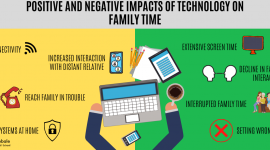Hospitals that are meant for taking care of mentally disabled teenagers promise to provide quality treatment. It is meant for stabilizing the serious mental condition for a very short term. To ensure proper security, the victim is locked in a room with clinical assistance, 24/7.
The need for hospitalization facilities for mentally disabled teenagers
Similar to that of hospitals meant for those patients who are suffering from physical problems, a mental hospital is also constructed in various parts of any city to ensure proper care and constant intervention to control the mood or any intense behavioural actions of any teenager.
There are several situations in which one needs to be hospitalized immediately:
- Suicidal attempts
- Attempt to murder cases or trying to harm someone using any sharp object
- Hallucinating in regular intervals
- Physical anger which can’t be controlled easily
- Panic and anxiety
Teens require different care from that of adults; hence, a psychiatric hospital must have different special care units for adults and teens. The staff must be skilled enough to deal with adults and teenagers differently.
How treatment is conducted in hospitals meant for mentally disabled adolescents.
The two essential things to know about hospitals, meant for mentally disabled adolescents are as follows:
- Treatment is intensified to a certain extent
- The best part is, the duration of staying in the hospital is lesser.
Psychiatric hospitals thoroughly analyze the entire crisis, act quickly to provide mental stability to the victim and develop a comprehensive curriculum for taking good care of the victim.
The comprehensive analysis begins while the patient is admitted and is concluded by conducting a thorough interview of the victim, family members, friends or school core members who can provide detailed information revolving around the victim. The assessment is conducted on the basis of the history of illness, drug cases, alcohol, previous treatment revolving around the victim.
Every psychiatric hospital has a dedicated team of staff members who take good care of the victim. The staff members may consist, abuse counselors, psychologists, psychiatrists, social workers, therapists and teachers. Experts from the previously mentioned fields, evaluate the victim and recommend him/her while treatment is about to take place and also after he/she is discharged.
Numerous psychological tests, group therapies with other mentally unstable teens, comprehensive academic programmes, leisure activities, family therapies, etc. are few well-structured daily activities in the curriculum for quality treatment of the victim.
The correct time of discharging the patient
Discharge isn’t the end of the chaos but ensuring for a better keep-up with the patient. It generally involves “Aftercare” of a patient after he/she is being discharged from the hospital. One may be discharged, if positive effects can be seen on the victim, else he/she has to be fit into residential care. If proper medication and care, yields positive results, then outpatient therapy may be recommended for the victim. A case manager is generally appointed in the case of a discharge plan. Following up with the patient is compulsory in the case of psychiatric diseases, to ensure the child remains internally and externally, stable.
It is essential to be sure of your teen’s present condition on which his/her stay totally depends on. However, short stays are recommendable because such treatments are highly expensive, and long stays can burn a hole in your pocket. Short stays, quality treatment and constant follow-ups by counselors ensure effective recovery of your teenager.









